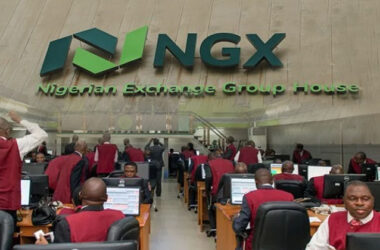In the landscape of Africa’s industrial and economic ambitions, few projects have stirred as much excitement and promise as the Dangote Refinery. As the largest single-train refinery in the world, this monumental endeavor, spearheaded by Nigerian billionaire Aliko Dangote, has the potential to reshape not only Nigeria’s economic fortunes but also those of the entire continent. However, for this ambitious project to truly succeed, it requires more than just financial investment and technological prowess; it demands a coordinated national effort and unwavering support from all sectors of society.
The Dangote Refinery stands as a beacon of economic hope. With the capacity to process up to 650,000 barrels of crude oil per day, it represents a game-changer for Nigeria, a country that has long been plagued by the paradox of abundant oil resources coexisting with chronic fuel shortages and a reliance on costly imports. By producing a substantial portion of the nation’s refined petroleum products domestically, the refinery promises to alleviate the perennial fuel scarcity that has crippled businesses and stymied economic growth.
Moreover, the refinery is set to create thousands of jobs, both directly and indirectly, stimulating economic activity and fostering entrepreneurship. The ripple effects of this job creation will be felt across various sectors, from logistics and construction to retail and services. The long-term economic benefits are profound, potentially transforming Nigeria into a regional hub for refined petroleum products and reducing the trade deficit caused by fuel importation.
For the Dangote Refinery to reach its full potential, it is imperative that there is robust infrastructure and policy support. The success of such a massive industrial venture hinges on the seamless functioning of complementary sectors such as transportation, power supply, and security. Infrastructure investments, particularly in roads, ports, and electricity, are essential to ensure that the refinery operates efficiently and that the refined products are distributed effectively across the country.
Equally crucial is the role of government policy. A conducive regulatory environment is needed to facilitate smooth operations, including clear guidelines for taxation, tariffs, and environmental compliance. Moreover, the government must work to eliminate bureaucratic hurdles that could impede the refinery’s progress. By fostering a supportive policy environment, the government can help ensure that the refinery not only meets its production targets but also remains competitive on a global scale.
The environmental impact of large-scale industrial projects cannot be overlooked. As Nigeria strives to balance economic growth with environmental stewardship, it is essential that the Dangote Refinery adheres to the highest standards of environmental sustainability. This includes implementing cutting-edge technologies to minimize emissions, managing waste responsibly, and contributing to the local ecosystem through conservation efforts.
Additionally, transparency and community engagement are vital. The refinery must work closely with local communities to address concerns, provide economic opportunities, and support local development initiatives. This approach will help build trust and ensure that the benefits of the refinery extend beyond its immediate operations.
The success of the Dangote Refinery is not solely the responsibility of its investors or the government; it requires a collaborative effort from all stakeholders. Public-private partnerships can play a crucial role in bridging gaps in financing, technology, and expertise. By fostering collaboration between the private sector, government agencies, and civil society, Nigeria can create an ecosystem that supports the refinery’s success and maximizes its benefits for the nation.
In summary, the Dangote Refinery is more than just a large-scale industrial project; it is a symbol of Nigeria’s potential to achieve economic self-sufficiency and regional leadership. To ensure its success, it is imperative that all stakeholders—government, private sector, and local communities—work in concert to provide the necessary support, infrastructure, and policy framework. By doing so, Nigeria can harness the full potential of this transformative venture, paving the way for a brighter and more prosperous future.









